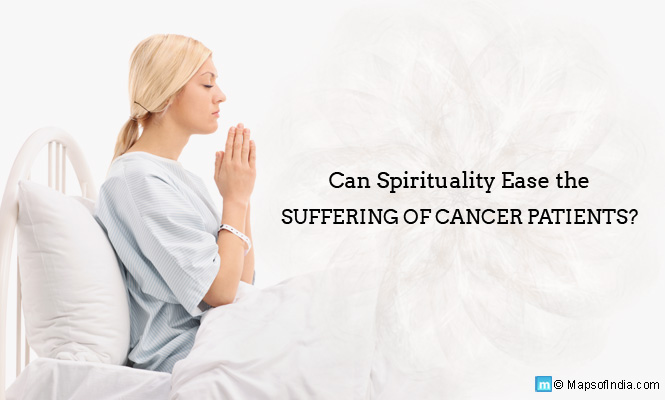In a new study published in the journal Cancer this month, a group of American researchers have concluded that spirituality aids the fight against cancer.
The researchers looked at the effects of incorporating spiritual practices in the care of cancer patients in mainly three areas: physical health, mental health and social well-being. Patients who experienced greater emotional aspects of religion were found to show better physical adjustments to the ravages of cancer and its side-effect inducing treatments.
Likewise, those with emotional involvement in religion and with a sense of larger purpose of life were found to be less anxious, distressed and depressed. On the other hand, those who showed greater disconnectedness with spiritual and religious matters were more likely to be psychologically distressed and emotionally upset.
Further, those with a more benign understanding of god (one associated with benevolence rather than punishment) and concepts of a personal god who could be called upon at times of crisis were better socially integrated even during the phase of the illness.
While these findings are probably along expected lines, it is well worth confirming them once again, in the face of the skepticism that such psychosocial initiatives are usually countered with by those who insist on ‘evidence based medicine’. While the findings do not confirm a cause-and-effect relationship between spirituality and better health for those with cancer, they do provide some hope for patients and their families.
It would be prudent to include spiritual aspects in the overall clinical care of those with cancer. Already psychosocial oncology – that branch of cancer study that covers the psychological and social aspects of care – is a significant part of the multidisciplinary care of cancer, especially in the western countries.
In India, as with any service offered to care providers, psychosocial oncology is still in the infantile stage of development and it would probably take a few more years for it to become a norm. The estimated prevalence rates of psychiatric conditions in those with cancer is said to be anywhere between 40% and 80%. There have been very few state-sponsored and state-managed psychosocial oncology organisations. Centre of Psycho-Oncology for Education and Research is one such organization based in Bangalore; many more are needed across the country.
However, even within this field, the practice of incorporating spirituality in the overall scheme of things appears to be patchy across the world. With this new research finding, one hopes that meditation, mindfulness, and spirituality in its various aspects are given their due in the management of a complex condition such as cancer. The nature of the spiritual practice undertaken would of course depend on the suitability to the individual need and the willingness on the part of the patient to put it into practice.




